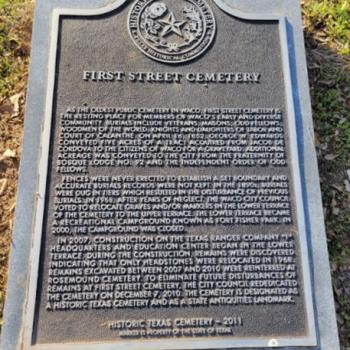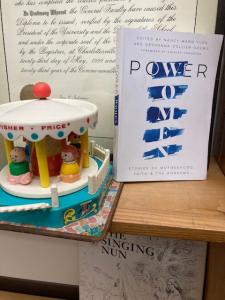We are still in the thick of Civil War commemorations— perhaps Americans never are far from them–and entering a fresh phase with the release of Lincoln on the big screen. For Georgetown, Massachusetts, where my family lives, Civil War memory has two primary foci: the Massachusetts 50th Volunteer regiment, Company K, a fellowship of town men, and Charles Beecher, controversial pastor of the town’s Congregational church during the conflict. The Beecher name might be familiar because of Harriet Beecher Stowe, author of Uncle Tom’s Cabin. Or brother Henry Ward Beecher, Brooklyn pastor whose recent biographer Debby Applegate calls “The Most Famous Man in America,” or older sister Catherine Beecher, who reshaped female education and domestic life. Paterfamilias Lyman Beecher, father of four daughters and seven sons (all ministers), saw New England churches move from reliance on state support to energetic voluntarism. The Beecher family loomed large in the nineteenth century, with hardly an important trend from which they stood remote: religious revival and reform, church scandal, westward migration, foreign missions, abolition and war, women’s rights, freedmen’s uplift, spiritualism.
While the Beechers were practically everywhere and can be claimed by many movements and places, Charles Beecher belongs particularly to Georgetown, serving for decades in its church, his bones laid to rest in its Harmony Cemetary. As a young man he was a church organist in New Orleans, gathering there stories of slave life that Harriet may have used later in her writing. After pulpits in Indiana and New Jersey he moved to Georgetown in 1858. Like his siblings he faltered on the Reformed, predestinarian, conversion-oriented theology of his father. In the summer of 1863, twenty-seven members of his congregation petitioned the ecclesiastical council overseeing area churches, complaining that “It seems to us that several doctrines preached by our pastor are not in accordance with the faith once delivered to the saints, and held generally by the churches of New-England.” Beecher suspected they also objected to his advocacy of abolition. Charles was tried for heresy in July 1863, just weeks after his son Frederick, a Union lieutenant, was wounded at Gettysburg. A heresy trial concurrent with the Civil War: one event a small, local, ecclesial matter, the other a great national conflict. Taken together—as the Beecher family experienced them together—they demonstrate that the lives of people who seem distant from big events are not necessarily disconnected from them.
Charles was found guilty of heresy. As the New York Times reported, both the complainants and the council identified not only scripture but also a strain of New England tradition as standards for orthodoxy. Beecher’s conviction split the Georgetown church, with the majority willing to flout the ecclesiastical conference to keep him as pastor. New England’s colonial churches were founded upon both Reformed theology and a church order insisting on the integrity of each congregation. Beecher’s supporters were willing to uphold that ecclesiology even when the theology departed. Some in Beecher’s fold did leave to start a new church. But several years later, his heresy conviction was overturned.
Though the indignity of being denounced as a heretic might have made him shake off the dust of Georgetown, Charles kept to his work here long after. In 1870 he was lured to Florida by Harriet to minister among freedmen, where he served as Superintendent of Public Education, trying to arrange texts, teachers, and pupils. By the end of his tenure school enrollment had more than doubled, and blacks and whites both were involved in the educational system. Though he prized the climate and flora of the south, he returned north, eventually moving back to Georgetown to live with a grown daughter. He died here in 1900.
In a region so historically rich as New England, Charles Beecher is not quite enough to make Georgetown famous. But he and his siblings call to mind three noteworthy features of the landscape of the past. First, they remind us how central clergy were to their communities, how influential in public life for spiritual and social concerns. Second, Charles Beecher draws interest and perhaps empathy for his efforts to square his ancestral faith with demands of his time. Some of his answers might seem plain wrong, others peculiar to his time, and others earnest tries to understand scripture, tradition, and the pain of living. Finally, like Americans generally, the Beecher family exhibited both mobility and rootedness. A New England family rooted in many ways to particular patches of Massachusetts and Connecticut, they made themselves at home in west and south as work, school, and mission afforded fresh opportunities.
Summing his era, nineteenth-century pastor and Yale professor Leonard Bacon quipped, “This country is inhabited by saints, sinners, and Beechers.”












